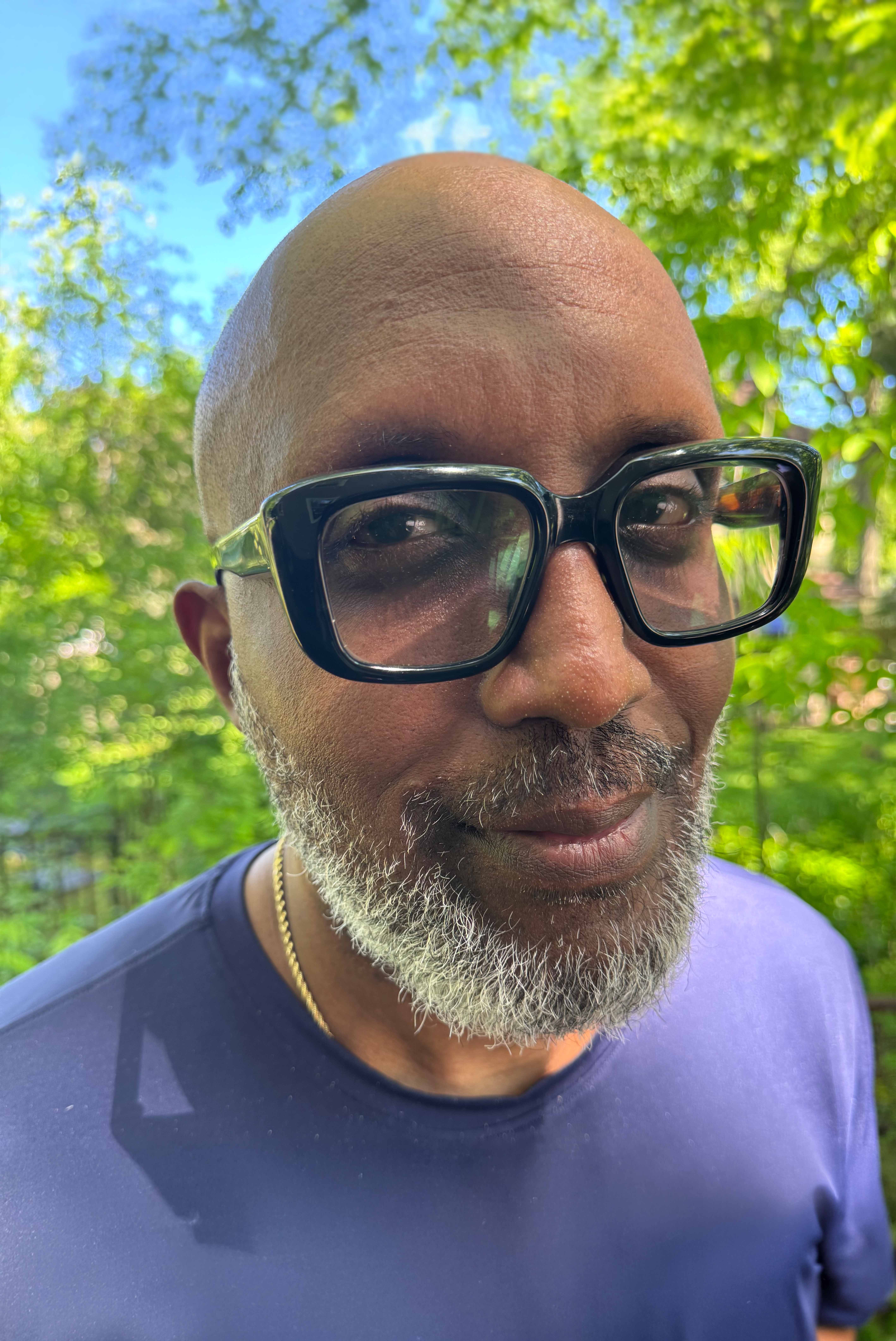It’s February, and the judge in Western New York watched me struggle to participate in his hearing over video. I could see him and the attorneys sitting behind two tables, and they could see me. However, I could not hear the voices of these people who would decide whether I should become the legal guardian of my 83-year-old mother. As I clicked computer keys, hoping for a breakthrough, my 90-year-old father was 700 miles away in Tennessee with my sister, unaware of what was happening. Both my parents live with dementia, a cruel disease that is eroding their minds. My sister and I promised to love and care for them during this stage of life. Watching dementia change them has been tough. But in this painful season, I am learning that God is teaching me joy—not despite my parents’ dementia, but through it.
In this painful season, I am learning that God is teaching me joy—not despite my parents’ dementia, but through it.At 62, I have studied in New York, Tennessee, Illinois, and more recently in Vancouver, British Columbia. However, no book or lecture can prepare you for the pain of seeing someone who looks physically as you remember and accepting that they no longer see you the way they once did, because they can no longer remember. All of this has led me to think about death in ways I never did in my twenties, thirties, or forties. My faith is being tested. Will I find the joy I need to flourish in the last third of my life?
Sometimes, it all feels so heavy, but I find comfort in Luke 2. There, we see an angel burst onto the scene, frightening a group of shepherds. “Do not be afraid,” the angel says. “I bring you good news that will cause great joy for all the people.” This divine messenger wanted the shepherds to understand the truth about Jesus’s arrival. All these years later, I somehow missed the angel’s declaration that this news was meant to cause “great joy.” But how? Jesus was born to parents of limited wealth and influence, and his homeland was under the control of the Roman Empire, a repressive regime that maintained power through conquest and death. Remembering the context gives the angel’s words greater meaning. Joy was never to be located in politics or power. In God’s economy, no movement or individual, regardless of political affiliation or messianic claims, is the answer to what ails our land or souls. We need something, better yet, Someone outside of ourselves, and that is Jesus—God’s perfect vision of what it means to be human.
In God’s economy, no movement or individual, regardless of political affiliation or messianic claims, is the answer to what ails our land or souls.Chapter 17 of John's Gospel should be particularly depressing, with Jesus’s bloody death quickly approaching. Yet instead of lamenting about the unfairness of it all, we find the selfless one asking his heavenly father to protect his followers, adding in verse 13, “. . . I say these things while I am still in the world, so that they may have the full measure of my joy within them.” Once again, the context is helpful. While Jesus set about doing God’s work against a backdrop of darkness, he lived with a transcendent happiness that he felt was so essential that he wanted his followers to experience it. Is that even possible?
In his journal, John Wesley wrote about traveling on a ship in 1736 that was being battered by a violent storm. His fellow travellers cried out in fear, sensing death was near. However, the ship also carried a group of German travellers, whose response was strikingly different.
. . . The sea broke over, split the mainsail in pieces, covered the ship, and poured in between the decks, as if the great deep had already swallowed us up. A terrible screaming began among the English. The Germans calmly sang on. I asked one of them afterward, “Were you not afraid?” He answered, “I thank God, no.” I asked, “But were not your women and children afraid?” He replied, mildly, “No; our women and children are not afraid to die.”
Fearing death certainly diminishes joy. I experienced this firsthand. I spent most of my career as a reporter, editor, and media executive, and fear cast a shadow over long periods of my professional life. Was I going to be scooped by the competition? Would the stories I edited make the front page? Did my colleagues think my intelligence and contributions were enough to earn their admiration and respect? Although I experienced success, I didn't experience abundant joy—the kind Jesus describes, which fear so often tries to steal. I believed the lie that people and their opinions could take away my dignity and sense of wellbeing. Besides relational and reputational death, both of which Jesus knew well, there's also this matter of physical death.
Helping my parents, as painful as it has been at times, is teaching me that joy is not something I can earn. It’s already mine—a gift from Jesus.Because my mother wanders off when left unattended, she is safely kept in a locked area of her Buffalo, New York, nursing home. On one of my visits from Cleveland, Ohio, I needed to grab something for her from my vehicle. As I left her room, I noticed the nurses were away from the front desk. They were attending to residents, so I sat in a chair near the locked door I needed to exit. As residents sat slumped and motionless under a television's drone or slowly inched around on walkers, I experienced this overwhelming sense of my mortality. Would dementia become my fate? My mother has it. Her sister has it. My father has it. His sister has it. And my father’s mother died of it. I have always had a porous memory. It’s as if my brain is allergic to granular details. I perceive life through the lens of grand themes and narratives, but I would stumble if you asked me the birthdates of my seven children and three grandchildren. I have always been this way. But what if my absent-mindedness is a harbinger of something more? The thought both unsettles me and presses me toward the joy Jesus promises—a joy not dependent on my mental sharpness but on his unchanging presence.
Interestingly, a hospital near me is conducting a groundbreaking study to determine what happens in a person’s brain and body before a diagnosis of neurological disease. One aspect of the study seeks healthy adults over age fifty to track for the next twenty years. They need more men and people of colour to obtain accurate, representative results. I meet all the criteria: I am male and Black, and I want to, in the study's words, help the hospital “realize a future without neurological disease.” However, my wife of nearly forty years, an immensely bright woman who often knows me better than I know myself, believes participating will plunge me into an abyss of worry. I have not decided what I will do. I want to help. But will helping rob me of joy? Looking at the arc of Scripture, it shouldn’t, but in all candour, I am still working through this idea of enjoying Jesus’s joy. Helping my parents, as painful as it has been at times, is teaching me that joy is not something I can earn. It’s already mine—a gift from Jesus. And one way to learn to practice it is through the tutelage of hard times.
As much as I wish I could, I cannot change my parents’ situation. However, I can change my attitude. I can choose to believe that prayer is effective. During those moments when I am overwhelmed by deadlines and decisions concerning my parents, I can ask God to still my heart with the peace and joy Jesus secured for me years ago. I can also choose to let go of the idea of perfection. Life is messy, and so am I. Sometimes I will make the wrong decision, and I certainly have throughout my life, and even with my parents’ care. But each time, God has turned false starts or mistakes into good, in the spirit of Romans 8:28-29, and increasingly conformed me into an image-bearer that increasingly mirrors Jesus. Knowing this, experiencing this, has certainly helped me to trust Jesus and his joy like never before.
Regarding that court hearing I mentioned earlier, fortunately, I got my computer to work. In less than thirty minutes, I was appointed as the caretaker of the person who raised me decades ago. The experience was orderly and clinical: light conversation, a few questions, and a judge saying, in essence, "Let it be so." My mother’s agency and independence were entrusted to me—someone far from perfect, but convinced that this season I am in has not taken God by surprise. I believe caring for my parents is a good work, one in which our good God is helping me discover joy.

